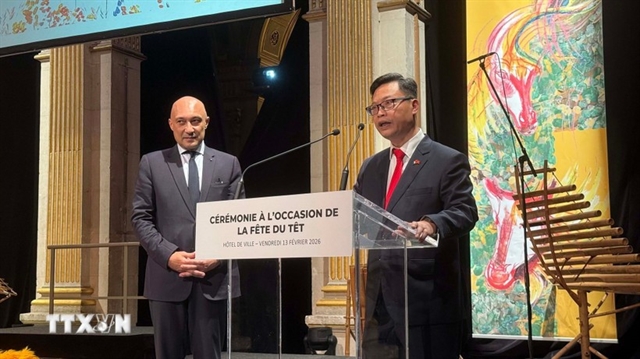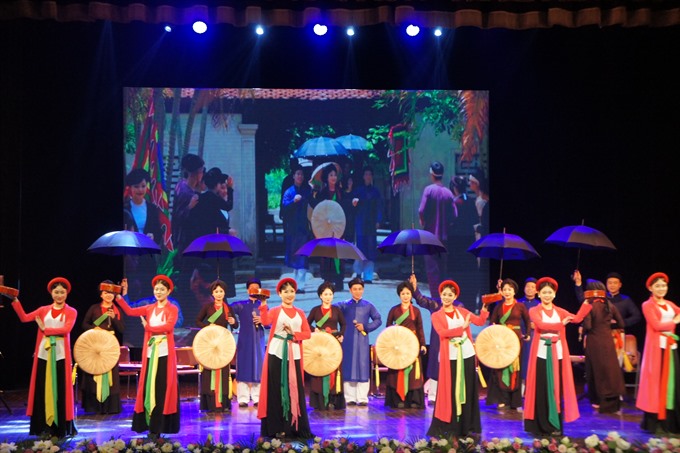 Life & Style
Life & Style

 |
| On a song: Vietnamese artists perform Quan họ songs, A UNESCO-recognised intangible cultural heritage, at the ceremony to celebrate the 40th anniversary of the establishment of the Việt Nam National Commission for UNESCO (1977-2017) on Monday in Hà Nội.— VNS Photo Lê Thư |
HÀ NỘI — The Việt Nam branch of UNESCO has been an effective bridge between the nation and the rest of the world, Phạm Bình Minh, Deputy Prime Minister and Minister of Foreign Affairs said yesterday.
He was speaking at a meeting held in Hà Nội to celebrate the 40th anniversary of the National Commission for the United Nations Educational, Scientific and Cultural Organisation (Việt Nam branch of UNESCO).
“The National Commission for UNESCO has played an important role in making cultural diplomacy an important pillar of modern Vietnamese diplomacy.
“Its efforts have evoked national pride, nourished aspirations to develop the country’s economy and society while preserving its cultural identity, enriching the image of Vietnamese people among international friends,” he said.
The event drew the participation of government officials, ambassadors and other guests.
In the 40 years since its inception on June 15,1977, UNESCO Việt Nam has worked as an advisory body to the Government and helped implement policies in culture, education and science.
The 40th birthday celebrations was an opportunity to spotlight UNESCO Việt Nam’s achievements, particularly in preserving the nation’s culture and heritage.
Đặng Thị Bích Liên, Deputy Minister of Culture, Sports, and Tourism and Vice President of UNESCO Việt Nam, said that the agency’s most outstanding achievement in the last 40 years was the building of dossiers to submit to UNESCO for recognition of monuments and unique, indigenous art forms as world heritages.
Until now, UNESCO has recognised seven world heritage sites in Việt Nam: the complex of monuments in Huế, Hạ Long Bay, Hội An Town, Mỹ Sơn Sanctuary, Phong Nha Kẻ Bàng National Park, Imperial Citadel of Thăng Long and the Tràng An Landscape.
The country also has 11 Intangible Cultural Heritages recognised by UNESCO: belief in the Mother Goddesses of Three Realms, a traditional practice with a long history in Việt Nam; Tugging rituals and games; Ví and Giặm folk songs; Đờn ca tài tử (southern folk music); the worship of Hùng Kings; Xoan singing in Phú Thọ; Gióng festival of Phù Đổng and Sóc temples; Ca Trù singing; Quan họ folk songs of Bắc Ninh; Gồng culture in the Central Highlands and Nhã Nhạc – Vietnamese court music.
Minh said UNESCO Việt Nam should focus on training its personnel so that it can strengthen its relations with UNESCO, have more Vietnamese nationals work for the agency, including the highest posts.
In April, Phạm Sanh Châu became the first Vietnamese to be nominated for the position of Director-General of UNESCO for the 2017-2021 tenure.— VNS